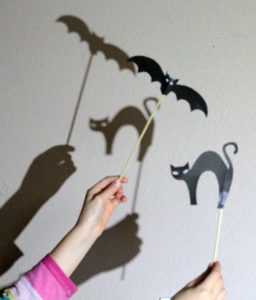 Recently, my phone suggested that I “create memories” of 2020 by sifting through my photos, and helpfully, it offered up the first one of the year.
Recently, my phone suggested that I “create memories” of 2020 by sifting through my photos, and helpfully, it offered up the first one of the year.
It was taken at a funeral.
My first thought was, “Sheesh, phone, read the room. 2020!”
Fifteen minutes later, though, I was thinking, “On the day of that funeral, Covid19 was arriving in California from China and in NYC from Europe. We were dimly aware a new virus had been identified, but did not yet understand that the seeds of the pandemic were floating down around us and taking root.” My next thought was, “If this was in a story, that funeral scene would make great foreshadowing.”
Because, yeah. Writer. Don’t judge.
Foreshadowing is when early in a story, the writer alludes to something big and meaningful still ahead. Students sometimes think that means, “Little did they know it would be the last time they’d eat in that restaurant,” or “It started out like a typical Thursday in June, but this would be one Thursday they’d never forget.”
Sentences like those are the opposite of foreshadowing, though—they don’t hint at events to come, they announce them. “ICEBERG AHEAD!” is not foreshadowing.
The whole point of foreshadowing is to heighten suspense, to create a tingle up the reader’s spine. The more subtle your foreshadowing, the more effective it can be—readers sense something strange, scary, hilarious, or dangerous is looming, but they don’t know what it is or when it will strike.
In Shakespeare’s Macbeth, for example, you might mistake for foreshadowing the three witches in the first scene chanting, “Fair is foul and foul is fair.” They’re not foreshadowing, though, they’re declaring to the audience that they’re about to stir up some trouble.
Foreshadowing comes in the next scene, when a nameless sergeant describes Macbeth locked in battle with his enemy: “As two spent swimmers, that do cling together and choke their art.”
That line captures the combat between two armies engaged in a long, vicious war but also alludes to the toxic relationship between Macbeth and his wife. He and Lady Macbeth will soon (SPOILER ALERT) conspire to murder the king, and seal their own tragic fates. Fair is foul.
This tumultuous year has given us no shortage of material to be mined for possible foreshadowing. So let’s do a writing exercise.
Look back on your 2020—scroll your Instagram, re-read your journal, search your sent emails—and find a moment that did not feel all that meaningful to you at the time, but now seems prescient, portentous, or poignant. Write the scene but don’t reveal the drama that’s to come—hint at it. And remember, the subtler, the better.

Kelly Caldwell
Dean of Faculty


